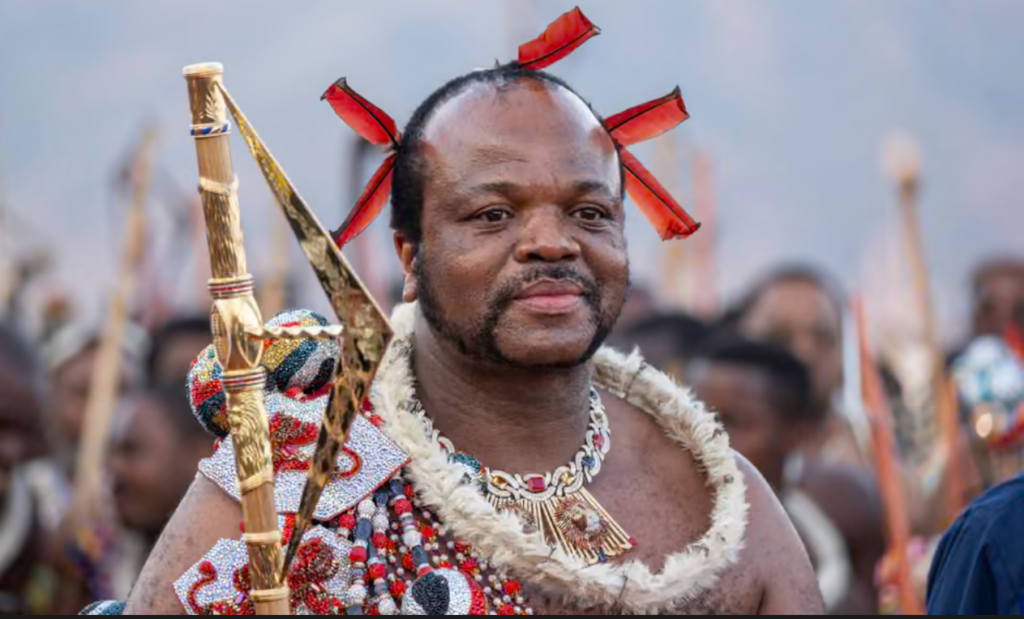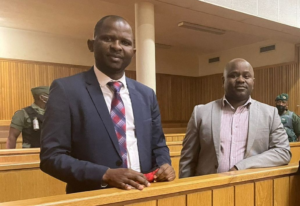Royal Privilege and Selective Justice: Who Really Controls the Police in Eswatini?

Once again, the Kingdom of Eswatini finds itself trapped in the same loop—where power dances above the law, and justice is a distant illusion reserved for the common man.
King Mswati’s spokesperson Percy Simelane recently made a bold claim: “The King does not interfere with police investigations, even if the criminal case involves a royal family member.” This statement followed the arrest of outgoing Government Spokesperson Alpheous Nxumalo, who is accused of raping multiple children, including two without a condom—despite reportedly being HIV positive.
Let that sink in. A high-profile government official, known to be HIV+, stands accused of preying on innocent children, and the palace wants us to believe that justice is being served without royal interference.
Simelane added that even in the alleged rape of a University student by a royal family member, the King did not interfere. He claims that the police failed to act because “the alleged rape had not been reported to any Police Station in that region.”
So, the entire police service couldn’t lift a finger to investigate a crime simply because no report was filed? Since when did justice depend solely on formal complaints in a country where victims live in fear of retaliation from the powerful? Are we supposed to believe that the police had no capacity to investigate a case involving the monarchy simply because of procedural technicalities?
This is the kind of gaslighting we’ve become used to. It’s not new. Each time a royal or someone politically connected is in the spotlight, government mouthpieces rush to declare the King’s innocence—as if the nation is suffering from mass amnesia.
But the people are watching.
We watched as alleged serial rapist Alpheous Nxumalo walked out of jail on bail, thanks to Judge Mumcy Dlamini. No consideration was made for the trauma inflicted on the victims—children—who now live with the consequences of this man’s alleged cruelty.
Let’s be honest: if Nxumalo was an ordinary Swati man, he would be rotting behind bars with no hope of bail. But this is Eswatini, where the powerful enjoy selective justice while the poor are trampled upon.
If King Mswati really does not interfere in legal matters, let him prove it. Let us see justice prevail not just in press statements, but in open court, where both the guilty and the innocent are treated equally, regardless of their bloodline.
But that is wishful thinking in a country where absolute monarchy rules over everything.
This issue is not about whether the King personally makes a phone call to stop an arrest. The deeper problem lies in the culture of fear and submission that permeates the police force and the judiciary. Everyone knows that going after a royal or a government official could be career suicide. So officers and judges “self-censor” to protect themselves—no need for the King to say a word.
Simelane’s words are not comforting—they’re insulting. They insult the intelligence of every Swati who sees with their own eyes how justice bends for the rich and powerful.
Until power is placed in the hands of the people, and not in the hands of one man, there will never be true justice in Eswatini.
Justice delayed is justice denied—but in Eswatini, justice isn’t just delayed. It’s handpicked.




This is a powerful and heartbreaking read. It’s infuriating to see how justice is manipulated to protect the powerful while the vulnerable suffer in silence. The fact that a high-profile official accused of such heinous crimes can evade accountability is a glaring indictment of the system. How can we, as a society, continue to tolerate this blatant disregard for fairness and equality? The victims, especially children, deserve so much better than this. Why is there no public outcry or collective action to demand real change? And what does it say about us if we remain silent while this injustice persists? How can we break this cycle of fear and submission to ensure that no one is above the law?
This is a deeply troubling account of the systemic issues plaguing Eswatini. It’s heartbreaking to see how justice seems to be a privilege rather than a right, especially for the vulnerable. The fact that a high-profile official can allegedly commit such heinous acts without proper investigation is a clear sign of a broken system. How can the people trust a government that prioritizes protecting the powerful over seeking justice for victims? The case of Alpheous Nxumalo is particularly disturbing—how can a judge justify granting bail in such a case, ignoring the trauma of the victims? If King Mswati truly doesn’t interfere, why not allow transparent, independent investigations to prove it? What will it take for the people of Eswatini to see real change and accountability?